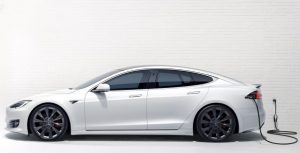 With the U.S. Senate working this week on the American Energy Innovation Act, U.S. Senator Mike Braun will offer two modifications to the tax code that will eliminate the Electric Vehicle tax credit for wealthy families and vehicles that cost over $50,000. The Ending the Electric Vehicle Entitlement for the Wealthy Act will eliminate the EV tax credit for joint tax returns over $326,600 and individual returns over $163,300.
With the U.S. Senate working this week on the American Energy Innovation Act, U.S. Senator Mike Braun will offer two modifications to the tax code that will eliminate the Electric Vehicle tax credit for wealthy families and vehicles that cost over $50,000. The Ending the Electric Vehicle Entitlement for the Wealthy Act will eliminate the EV tax credit for joint tax returns over $326,600 and individual returns over $163,300.
Meanwhile, the Affordable Electric Vehicle Credit Act of 2020 will limit the EV tax credit for vehicles costing less than $45,000. Vehicles that would still be eligible for the EV tax credit: BMW i3, Chevrolet Bolt EV, Honda Clarity Electric, Hyundai Ioniq Electric, Hyundai Kona Electric, Kia Niro EV, Mini Cooper SE, Nissan Leaf, Nissan Leaf Plus, Tesla Model 3, Tesla Model Y and the Volkswagen E-Golf.
According to the U.S. Department of Energy, on average, EV owners also own two other cars. Further, 42% of EV owners earn more than $150,000 annually. Between Fiscal Year 2011 and Fiscal Year 2017, this tax credit totaled $2.2 billion in lost revenue.



